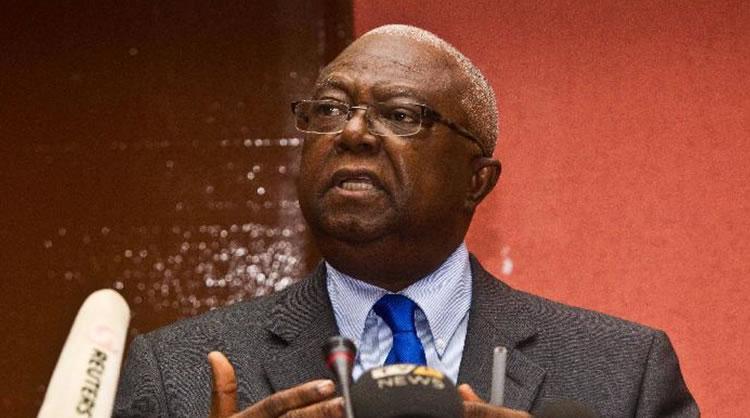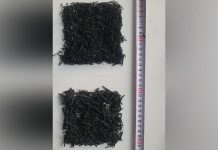Africa-Press – Liberia. The former Head of the Interim Government of National Unity (IGNU) of Liberia, Dr. Amos Claudius Sawyer, has officially resigned from politics. Dr. Sawyer served as Interim President of Liberia from November 22, 1990 to March 7, 1994).
He was also the former Chairman of the Panel of Eminent Persons, African Peer Review Mechanism (African Union) from 2010 to 2014. In a brief statement released to FrontPage Africa in Monrovia on Tuesday, October 19, Dr. Sawyer attributed his decision to health challenges.
He pointed out that these health challenges limit the range of activities in which he can no longer be fully and productively engaged. “I announce today my retirement from partisan politics in Liberia. I have been a member of the Liberian People’s Party since its founding by Movement for Justice in Africa (MOJA) in 1980 at MOJA’s Second Congress”.
Dr. Sawyer pointed out that despite his decision taken; he intends to continue his engagement as a senior scholar and citizen, working along with others to sustain peace and reconciliation in the Liberian society.
He emphasized that he will also remain engaged working with others to help strengthen Liberia’s democracy and enhance development in the nation and the region in general.
“A special thanks to all who have worked with me over the decades of my involvement in national political affairs as a partisan. Needless to say, my commitment to Liberia and the people of Africa remains unshakable,” he stated.
Dr. Sawyer was born on June
15, 1945.
He was a 1966 graduate of Liberia College (now the University of Liberia). He traveled to the United States for graduate work, earning M.A. and Ph.D. degrees in political science from Northwestern University in metropolitan Chicago, Illinois.
After his return, Dr. Sawyer worked as an academic, but also became an activist and politician. He ran for the position of Mayor of Monrovia, the capital, as an independent rather than within the True Whig Party (TWP).The latter had dominated the country for more than 100 years.
After the 1980 coup d’état, Sawyer returned to academia for a time, taking a position as a professor of political science at the University of Liberia.
In December 1980, he was appointed Dean of the College of Social Sciences and acting director of the University. He was a founding member of the Movement for Justice in Africa (MOJA) and in 1983 founded the Liberian People’s Party.
In the period after the abduction (and eventual murder) of President Samuel Doe, from 9 September 1990 until 22 November 1990, principal mutineer Prince Johnson and co-conspirator Charles Taylor both made claims on the presidency.
In late August an emergency conference was held in The Gambia by a delegation of 35 Liberians representing seven political parties and eleven interest groups. They voted Sawyer as interim president and Bishop Roland Diggs as vice-president, to establish a government.
In 1992, Sawyer wrote The Emergence of Autocracy in Liberia: Tragedy and Challenge, in this book, he depicts how dictatorial control rose up out of a custom of patrimonial power, with the privileges of administration tirelessly brought together and amassed in the possession of progressive presidents.
This example of absolutism, which was not in itself oppressive, finished in the military tyranny. Such leaders extended Dr. Sawyer’s one-year appointment for four years during the civil war fought against rebels led largely by Taylor, Johnson, and David Nimely.
In 1994, Dr. Sawyer was forced to step down as a part of the peace process, and subsequently the role of official leader of Liberia was held not by the president, but by the Chairmen of the Council of State. Fighting sparked again in 1996, and continued during Charles Taylor‘s presidency from 1997 to 2003.
Dr. Sawyer returned to the US for a period, invited to serve as Associate Director and Research Scholar, Workshop in Political Theory and Policy Analysis in the Department of Political Science at Indiana University in Bloomington, Indiana.
He is also the former Chairman of the Governance Commission. His book, Beyond Plunder: Toward Democratic Governance in Liberia (2005), explored the development of multi-party democracy in the country. He supported Ellen Johnson Sirleaf in the October 2005 and 2011 elections.
Dr. Sawyer was regarded for playing a fatherly in mitigating and helping to amicably resolve issues, misunderstandings or crisis between the Sirleaf led-government and its political opponents, youth, student grouping and other pressure groups. Most often, his interventions were intended to safeguard Liberia’s peace and emerging democracy.






